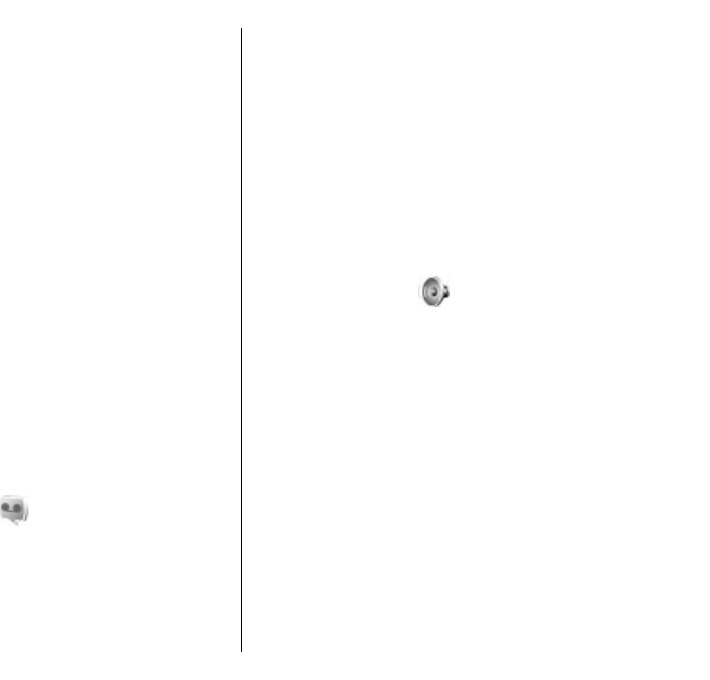
To reject net calls from anonymous callers, select
Anonymous call barring > On.
Send DTMF tones
You can send dual tone multi-frequency (DTMF) tones
during an active call to control your voice mailbox or
other automated phone services.
Send a DTMF tone sequence
1. Make a call, and wait until the other end answers.
2. Select Menu > Options > Send DTMF.
3. Enter the DTMF tone sequence, or select a
predefined sequence.
Attach a DTMF tone sequence to a contact card
1. Select Menu > Contacts. Open a contact, and
select Options > Edit > Options > Add detail >
DTMF.
2. Enter the tone sequence. To insert a pause of about
2 seconds before or between DTMF tones, enter p.
To set the device to send the DTMF tones only after
you select Send DTMF during a call, enter w.
3. Select Done.
Voice mail
Select Menu > Tools > Call mailbox.
When you open the Voice mail application for the first
time, you are asked to enter the number of your voice
mailbox.
To call your voice mail, select Options > Call voice
mailbox.
If you have configured net call settings to your device
and have an internet call mailbox, select Internet call
mailbox > Options > Call voice mailbox to call it.
To call your voice mail in the standby mode, press and
hold 1; or press 1 and then the call key. If you have
defined an internet call mailbox, select whether you
want to call your voice mail or internet call mailbox.
To change the voice mailbox number, select the
mailbox and Options > Change number.
To change the internet call mailbox address, select the
mailbox and Options > Change address.
Voice aid
Select Menu > Tools > Voice aid.
The Voice aid application reads text on the display,
allowing you to use the basic functions of your device
without looking at the display.
To hear the entries in your contacts list, select
Contacts. Do not use this option if you have more than
500 contacts.
To hear information on your missed and received calls,
dialled numbers, and frequent calls, select Recent
calls.
To listen to your voice messages, select Voice
mailbox.
To dial a telephone number, select Dialler.
To hear the current time, select Clock > Time. To hear
the current date, select Clock > Date.
39
Business communications
